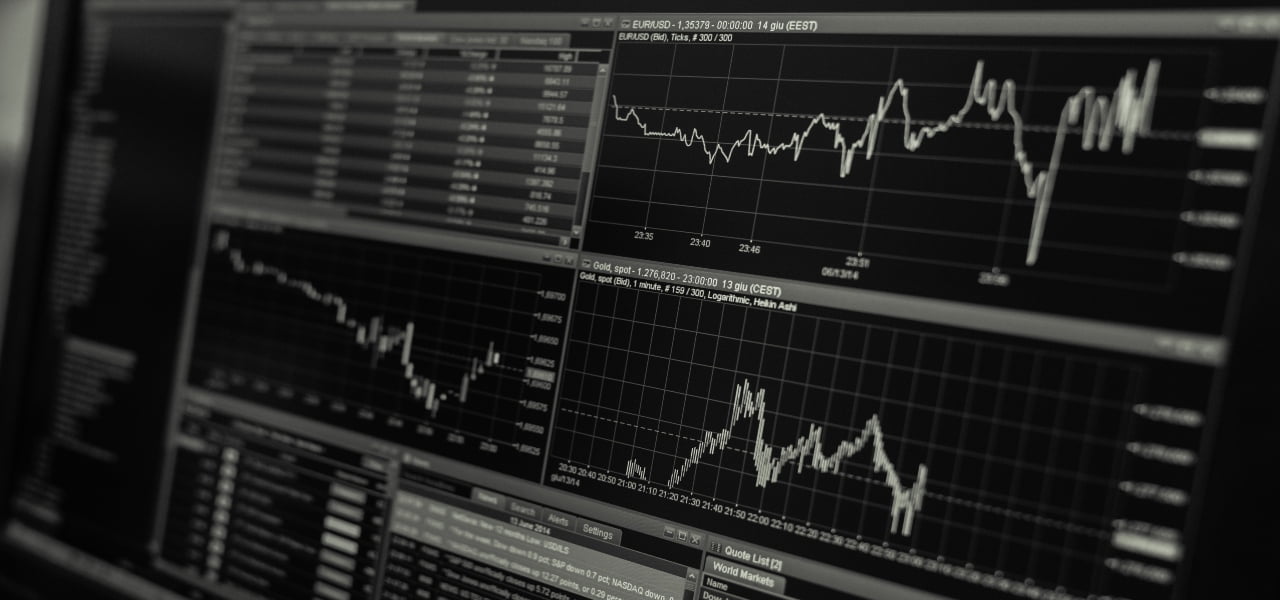According to data group HFR, over 15,000 hedge funds are managing about $3 trillion worth of assets across the world. Most of them are located in and around New York City. Unlike banks and other financial institutions, hedge funds don’t attract much regulatory scrutiny even though they manage trillions of dollars worth of assets. Here we take a look at the top 10 most significant funds in the world and how much money they manage.
Hedge funds are notoriously secretive. Unless you are rich, you can’t invest in them because their minimum investment is $500,000 or higher. Most firms charge high fees – typically 2% of assets under management and 20% of gains.
What is a Hedge Fund?
For the uninitiated, hedge funds are asset management vehicles that aim to generate positive returns for their investors in both bull and bear markets. They design their strategies to protect your portfolio from market uncertainties. They employ both long and short positions and invest across stocks, bonds, gold, derivatives, currencies, and commodities. In recent years, they have been using complex algorithms and analytical practices to generate alpha.
These are the ten most significant hedge funds on the planet. The ranking is based on data from Pensions & Investments and ADV Ratings. Many of them also manage public funds and employ non-hedge fund strategies. For this ranking, we’ve considered only assets following vehicles.
Top 10 Hedge Fund Firms in the World
10- Davidson Kempner Capital
Headquartered in New York City, Davidson Kempner Capital Management has about $30.8 billion in assets under management as of June 2019. This hedge fund employs five strategies – long/short (L/S) equity, distressed investments, merger arbitrage, convertible bonds arbitrage, and L/S credit. Davidson Kempner Capital Management also has additional offices in London, Hong Kong, Dublin, and Philadelphia.
9- Citadel
Led by billionaire hedge fund manager Kenneth Griffin, Citadel has $32.24 billion in AUM. It has more than 1400 employees worldwide. The Chicago-based hedge fund focuses on equities, fixed income, commodities, credit, and quantitative strategies. It was named the Institutional Hedge Fund Manager of the Year at Institutional Investor Awards 2019.
8- BlackRock
Founded in 1988, BlackRock is the world’s largest asset management firm with $7.4 trillion of assets under management at the end of 2019. Experts have called it the world’s largest shadow bank because of its mammoth size. However, it has only $32.9 billion allocated to hedge fund strategies, according to Pensions & Investments. It has about 13,000 employees in more than 30 countries.
7- Elliott Management
Founded in 1977 by Paul Singer, Elliott Management is a privately-owned hedge fund. It has $37.7 billion in AUM as of June 2019. Elliott is one of the world’s largest activist funds. Many refer to it as a vulture capital fund because it invests mainly in distressed securities and takes a combative approach. Elliott bought the Barnes & Noble retail bookstore chain for $683 million. In 2017, Elliott had raised a staggering $5 billion from investors in less than 24 hours.
6- Millennium Management
New York-based Millennium Management was founded in 1989 by Israel Englander. According to Pensions & Investments, Millennium Management has $38.7 billion in AUM as of June 2019, which swelled to $40 billion by the end of December 2019. Millennium Management deploys money in a variety of investment strategies, including equities, currencies, futures, and asset-backed securities.
5- Two Sigma Investments
Two Sigma Investments was founded in 2001 by a team of computer scientists and mathematicians. It uses cutting-edge technologies such as artificial intelligence, machine learning, and distributed computing for its trading strategies and has $42.9 billion in AUM as of June 2019. Headquartered in New York City, it has additional offices in London, Hong Kong, and Japan.
4- AQR Capital Management
Greenwich, Connecticut-based AQR Capital Management is the fourth biggest fund in the world with $60.8 billion in AUM. It employs about 1,000 people in Greenwich, Chicago, Boston, Los Angeles, London, Tokyo, Hong Kong, and Frankfurt. AQR Capital Management uses quantitative analysis and computer models to make investment decisions.
3- Man Group
Man Group is the only non-US hedge fund on this list. London-based Man Group traced its origins to 1783 when James Man established it as a sugar cooperage and brokerage. It’s now the world’s largest publicly-traded hedge fund with $62 billion in AUM as of June 2019. It is by far the biggest hedge fund in Europe. Man Group also has offices in New York, Boston, Hong Kong, Tokyo, Sydney, and Switzerland.
2- Renaissance Technologies
Founded by noted mathematician Jim Simmons in 1982, Renaissance Technologies is a highly secretive firm with an incredible track record. Its flagship Medallion fund has returned a staggering 66% annually before fees and 39% after fees between 1988 and 2018. Jim Simmons is an award-winning mathematician and a Cold War-era code breaker for the National Security Agency. Renaissance Technologies employs complex mathematical models to analyze and execute trades and has $68 billion in AUM as of June 2019.
1- Bridgewater Associates
Founded in 1975 by Ray Dalio, Westport, Connecticut-based Bridgewater Associates is the largest hedge fund in the world. According to Pensions & Investments, it has $132 billion in AUM as of June 2019. By the end of 2019, its assets under management jumped to $160 billion. Bridgewater Associates had a lackluster year in 2019, gaining just $600 million for its investors. Bridgewater Associates uses a global macro investing strategy based on economic trends. Since its inception, the world’s biggest hedge fund has gained $58.5 billion for its investors.
Types of Hedge Funds
While many tend to lump hedge funds together as one class, there are vital differences between funds. There could not be a more significant difference between different types of firms. Indeed, a macro fund will have more in common with a mutual fund with a top-down approach macro than a distressed debt fund. Tiger Global and Bridgewater Associates have different styles. Tiger Global, which is a long-biased fund, also has a primary private equity focus. Below are some of the leading investment vehicles used.
Macro
These vehicles tend to look at the economy and see how that will impact various classes. Some funds combine strategies. For example, Pershing Square is mostly a fundamental and value based fund but does employ macro at times. At the beginning of 2020, Bill Ackman of Pershing Square Capital Management put on a significant hedge position fearing chaos from the Coronavirus pandemic.
Credit Long-Short
Credit firms focus on the higher tier of the capital structure, which consists of equity and credit. Credit firms focus on providing fixed income to its investors. However, within the credit asset class, there is a massive variance of quality and risk. For example, the term ranges from super safe US Government bonds to much riskier distressed debt or even from a company which is bankrupt (discussed further below).
Distressed Debt Funds
Distressed debt investments focus on high risk and high reward credit securities. Distressed debt is typically the obligation of a company that is near bankruptcy or even in the bankruptcy process. Usually, these fixed income products are rated CCC or lower and have a yield to maturity of 1000 basis points more than risk-free treasuries. Marathon, White Box, BlueMountain, and York Capital are among the best known distressed debt companies.
Equity Long-Short
These investment vehicles focus on stock investing. The vehicle will buy stocks that it expects to appreciate and short those it wishes to decline. A classic example of this asset class is the following: If a manager is bullish on Coca-Cola but unsure about the soft drink industry a possible position could belong Coke and short Pepsi to provide a cushion if the industry does do poorly.
Qualities of Top Hedge Funds
When it comes to picking top hedge funds, there is no magic formula. However, there are a few vital points that any potential capital allocator should take a look at. Make sure to take note of the following. Whether private equity, venture capital, real estate, or hedge companies, many famous managers produce an excellent track record, get investments, and then underperform. Factors behind this phenomenon include; too large of a capital base, strategy drift, and fear of underperformance.
Track Record of Good Performance
Top hedge funds usually have consistent stellar returns. One year and indeed, one month is not enough to measure performance. Ideally, investor returns should be analyzed over several years and if possible various market cycles. However, it is vital to note past performance is no indicator of future returns.
Size: Assets under Management
Size does matter! Funds that manage over a billion in assets under management have much less flexibility than those managed by an emerging manager. On the other hand, tiny vehicles with just a few million managed are too small to cover costs. The sweet spot for top hedge funds is probably between $100 million and $500 million in assets under management.
Strategy
Above, we discussed various ideas that investment companies typically employ. If you want a strategy that bases it’s investing in the broad economic market, then Renaissance Technology might be a good bet. On the other hand, if you want a great stock picker, then Seth Klarman’s Baupost Group would be more on key. Strategy preference will depend on both your philosophy as well as your goals. If you have a big company and portfolio, you will probably be allocated to all different types of investing and trading vehicles.
Background of Founders
Before investing in a vehicle, you must ensure you have thoroughly investigated the background of the founder/s. It would be best if you made sure that the manager is a proper fiduciary of money and is a trustworthy individual. Additionally, personal life is essential when it comes to picking money managers. For example, academic research shows that money managers going through a divorce are much more likely to underperform the average firm.
Stability of Capital
Investment vehicles that are pooled companies have long lockups. For a mutual fund or ETF, you can typically sell right away, however, when it comes to hedge funds, you usually need to give notice, and there are restrictions on withdrawing capital. There is a good reason for this – many of these vehicles are invested in very illiquid assets such as distressed debt or real estate. If forced to sell right away, the manager would usually take severe losses. For this reason, there is typically a lockup between 30-90 days.
FAQs
Do hedge funds pay more than investment banks?
Both careers can be extremely lucrative. However, if you want the potential to earn hundreds of millions or even billion, hedge funds edge out investment bankers. If you launch your firm and have successful years of strong returns of trading, you can earn more than 20% of all profits made.
What are the different types of hedging?
Hedging is investing in insurance. One primary strategy is trading put options to guard against market downturns. For example, if one expects global stock markets to crash and wants to protect their portfolio against such a scenario, you can buy the S&P 500 puts. In that scenario, if a fund manager is in long markets, their return will be slightly less impacted as investing markets decrease in value. Other types of hedging include futures contracts, forwards, and money markets.
Are hedge funds high risk?
Hedge funds tend to use riskier strategies than straightforward vanilla mutual funds. Hedge funds are allowed to use leverage and short positions which could greatly magnify losses. For this reason, the SEC only allows “qualified investors” to invest.
Why do hedge funds underperform?
Hedge funds have been under-performing since the financial crisis: this has been especially pronounced for some significant funds with over a billion in assets managed. However, many advocates will note that risk-adjusted return is more important than total returns. In that regard, hedge funds overall have held up a bit better.
What index funds does Warren Buffett recommend?
In a 2014 letter to investors, Warren Buffett recommends putting 90% of your assets in Vanguard low-cost index fund tracking the broader stock market. Buffett does not mention any specific funds, but Vanguard Total Stock Market ETF (NYSE: VTI) and the Vanguard S&P 500 ETF (NYSE: VOO) would both fit the description.
Final Words
Hedge fund investing is not for everyone; most are better off in index funds. However, if you want to protect assets against downturns, look for good fund managers who can hedge market declines. Additionally, funds with billions in assets are much less agile, and you would be better off by focusing on the best smaller managers.







